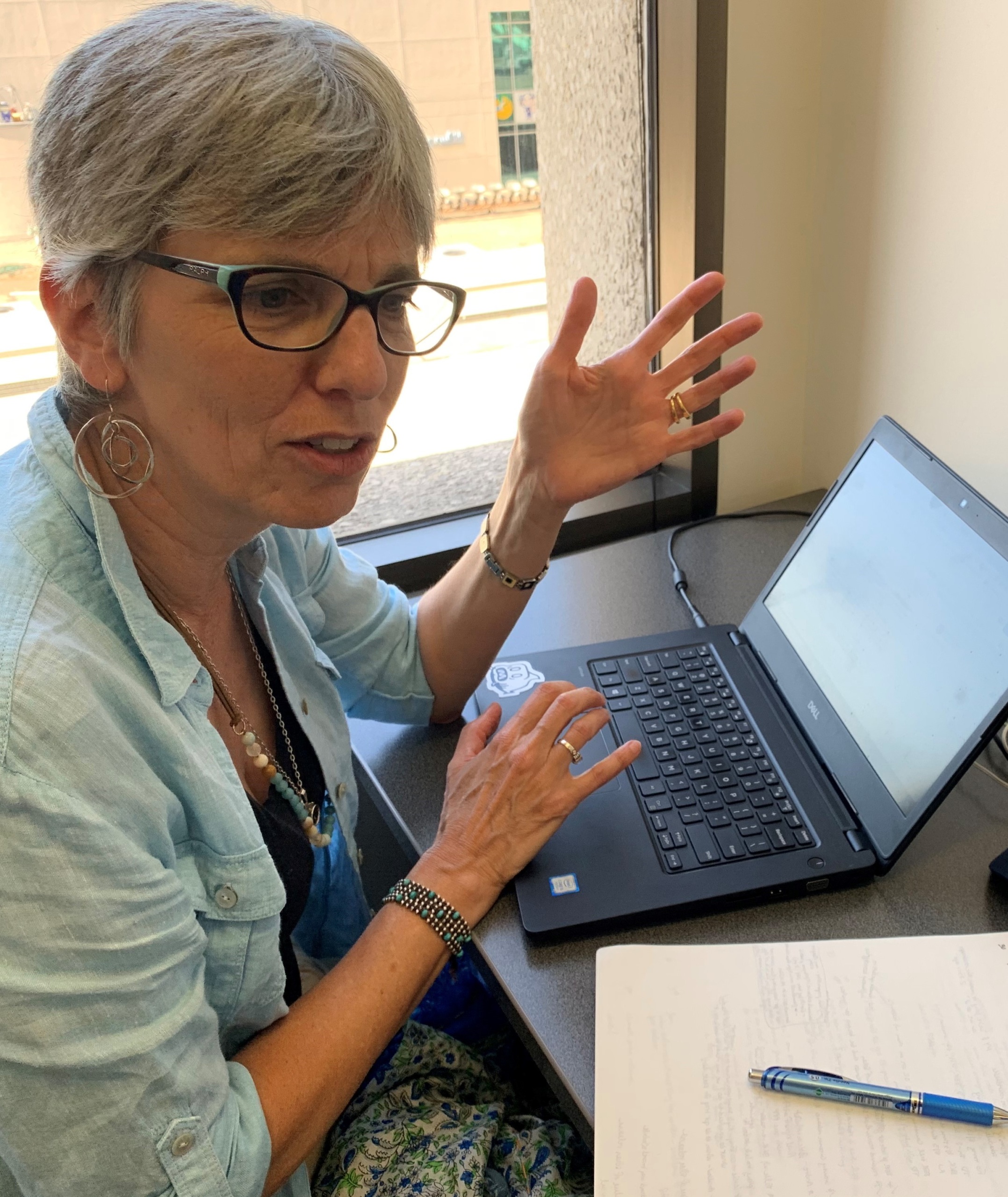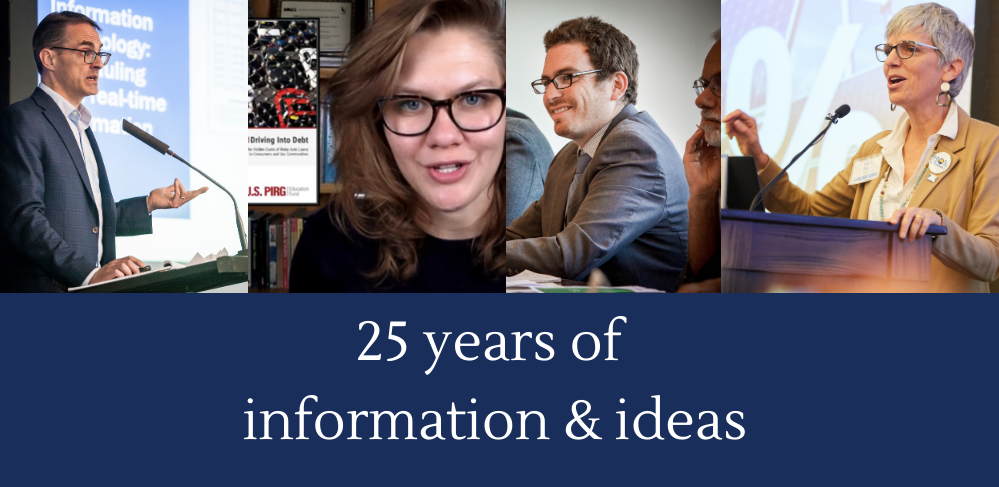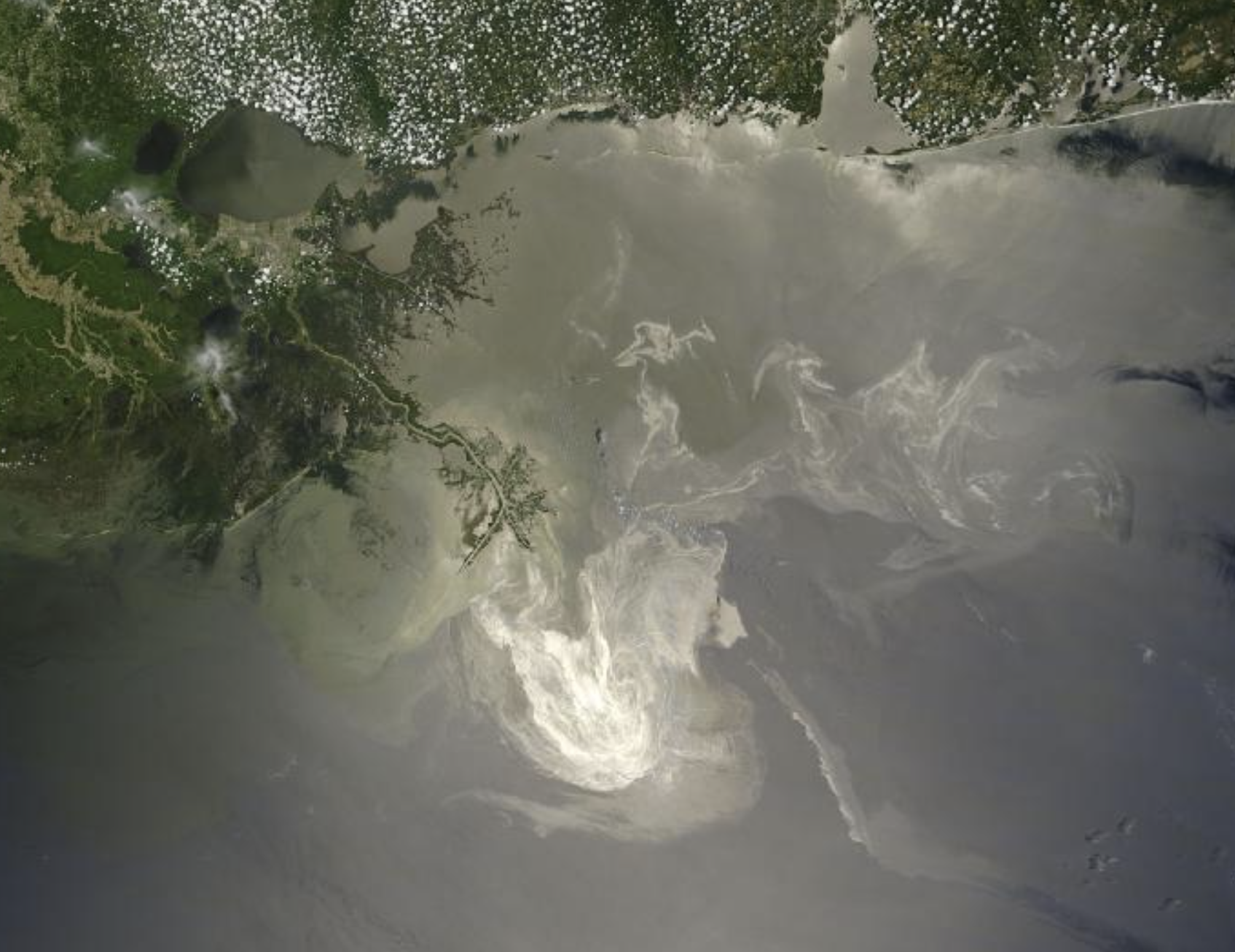
Frontier Group: 25 and counting
Beginning our look back at 25 years of Frontier Group: the research we've produced, and the partnerships and people that made it all possible.

Back in 1996, I left the role of Deputy Chief of Staff for the Public Interest Network to become the founding director of Frontier Group, the Network’s newborn research and policy development hub.
Doug Phelps, the president of The Public Interest Network, and I envisioned a team of policy analysts supporting the work of advocates and organizers in the states with powerful research and writing. We hoped that such a team might punch above its weight by developing research models that could be deployed in multiple states, by creating “serial” research products that could be used to track progress toward solutions over the years, and by developing powerful toolkits for report creation and policy development.
25 years later, that’s exactly what we’ve built.
In the weeks to come, we’ll share stories from two and a half decades of research and policy analysis — our favorite charts, our most significant essays, the most important policy debates in which our work played a role.
Two threads connect these stories. One is the gift of our deep partnerships with PIRG, Environment America and their respective state affiliates. More on that later. The other is our mission: to focus on the problems that arise from our nation’s material and technological wealth — what we call the problems of abundance. We aren’t just an environmental research group, or a consumer research group, or a transportation research group — we work across a range of issue areas linked by their emergence from America’s unmatched progress toward overcoming the societal condition of scarcity. We are committed to the idea that a society that has achieved so much can surely do better than destroying the planetary and community structures on which its existence relies.
To fulfill our unique mission and role, we’ve had to do things a little differently over the years, and we’ve developed a unique set of assets.
For example, our multi-issue research and policy shop started without any researchers or policy specialists at all. Those of us who founded Frontier Group back in 1996 were organizers, fluent in campaign strategy and messaging, well-versed in group building, and solid writers and editors. Research and policy development were new to us, so we learned as we went along. In our hiring we were and still are biased toward generalists — at first because we set out to provide support for a wide variety of campaigns and logistically couldn’t dedicate one person to one issue, but later because it was so clear that by working across issue areas, we were able to identify and apply insights that might not have otherwise come to us. When you’re a generalist, you’re more apt to see the tentacles of one issue poking their way into other areas — and get ideas from that. You might be looking at the problem of automobile dependence and then notice the role of auto finance in perpetuating that dependence. Or you might be looking at data about auto emissions for a report on global warming and notice that official projections about the growth of driving have nothing to do with reality. In 2021, as we watch the issues we work on colliding on the front pages, we still believe generalism, combined with an organizing ethos, is one of our greatest assets.
Another asset we’ve cultivated is our focus on what we’ve come to call “the empty quadrant.” In a 2013 report on the status of the climate movement, the Skoll Global Threats Fund created a graph plotting across two axes the vast array of organizations operating in the space. The y axis ran from Grassroots to Grasstops, the x axis from Research and Analysis at left to Outreach and Advocacy at right. The image was dense in all but the bottom left quadrant — where Research and Analysis met the Grassroots. At Frontier Group, our focus has always been on making public policy research accessible to real people in order to build broad-based public support for social change. To this day, we don’t have much company in our quadrant, though we welcome newcomers with open arms.
A third important asset is our focus on states. Policies that prevail at the national level are often the result of experiments cooked up in the “laboratories of democracy.” With our partners at PIRG and Environment America, we develop ideas that states can use to solve problems, building cases for those ideas based on localized data that brings the story home. Time and again, we’ve seen good ideas become policy, and percolate up to the federal level.
Our partnership with advocacy groups has given us another special asset: what we often call “legs.” We do research to make an impact, not just among a small group of insulated policy elites, but in communities around the country. That means our work has to be seen and heard far and wide. When Frontier Group releases a report, it’s not just at a single press conference in Washington, or even just on a webinar. Our national reports are regularly released by advocates in states from Maine to Oregon, from Arizona to North Carolina, with localized data, but shared messaging. Our partner groups get those reports out to their members and donors, to their coalition partners, to their media contacts and legislative targets. It makes a splash.
And then there’s our greatest asset: the team itself. Tony Dutzik and Elizabeth Ridlington, both gifted policy analysts and associate directors of Frontier Group, have worked with me for 20 years, and I cannot imagine a stronger partnership. Our alumni, with whom we reconnected on a Zoom in December of 2020, have immense pride in the work that they collectively did, along with a slew of hilarious memories. And then there’s the remarkable set of staff we have today. All these hardworking, brilliant people, dedicated to excellence in the pursuit of social change. What a gift to have worked with them over a quarter century.
We are honored and lucky to be a part of The Public Interest Network, a uniquely visionary, thoroughly pragmatic group of organizations that has made a difference in so many key debates and lives. And I am grateful beyond words for the opportunity that the Network gave us to corral some creativity and brain power and channel it towards the creation of a better world.
Here’s to the last 25 years, and the next.
Check out each of our 25th anniversary stories:
Topics
Authors
Susan Rakov
Managing Director, Frontier Group; Senior Vice President, The Public Interest Network
Susan directs Frontier Group, the research and policy development center for The Public Interest Network. Frontier Group’s work informs the public discussion about degradations to the environment and public health, threats to consumer rights and democracy, and the available routes to a better future. Susan lives in Santa Barbara, California; she has two children, a husband, and a dog, and is an amateur singer/songwriter.
Find Out More

How much does American driving contribute to global climate pollution?

Frontier Group at 25: 10 blog posts that challenged us to think differently

Frontier Group at 25: Charts that changed the conversation

